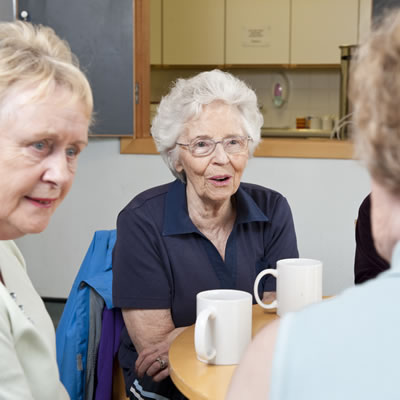
© Crown Copyright 2009
- Local libraries – often have a health section and information about local support groups in your area.
- Local coffee mornings – a good way of meeting a mix of different people.
- Local Authorities – what’s on in your area, leisure facilities, day or evening classes, services, clubs. They can also help with housing, if you need some extra help or care because of your condition, equipment to make daily tasks easier or community based therapists.
- Benefits advisors – Citizens Advice can help you to check if you are entitled to benefits and help you to make a claim.
- Voluntary agencies – to get help for you or to be a volunteer to help others at the same time as benefiting yourself.
- Church groups – you do not necessarily have to belong to a church or faith to go along and meet people. Some churches encourage people to help at food banks, run social clubs, pack charity Christmas boxes.
- Community centres – usually host a number of groups such as over 60’s, lunch clubs, walking group, exercise class.
- Day or evening classes – to learn a new skill and meet new people. Anything from music and art classes to learning to practical skills like cooking or use the internet or Skype to contact friends and family.
- Leisure centres – many now offer exercises for people with long term health conditions and help to get started from trained instructors.
- Local singing or drama groups – singing may help your breathing control while you meet new people.
- Help or advice lines –
- Chest Heart & Stroke Scotland freephone 0808 801 0899
- British Lung foundation 03000 030555





